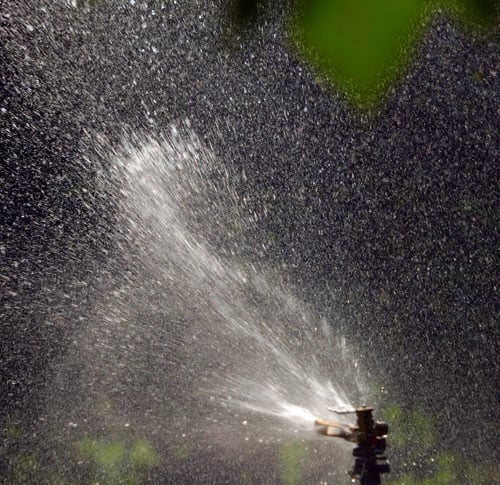Warmer weather means growing grass, and growing grass needs water. Before you pull out that old sprinkler and place it on the lawn for a few hours, read on for a quick class on Lawn Irrigation 101.

How Much Is Enough and When?
Many homeowners are aware of local watering bylaws and limitations. Working within those parameters, most people water their lawn when it suits their schedule and use the amount allowed by the local limitations. But be aware – you can over-water the grass, creating soggy conditions and weakened root systems. Consistent overwatering can be deadly to your lawn. And sporadic overwatering can kill the grass even quicker.
A properly installed lawn sprinkler system is designed to distribute the right amount of water – around one inch per week, give or take – at the right times. Timing is everything.
Although the occasional nighttime rain shower won't hurt your grass, setting the sprinklers to run overnight may result in mold and disease. It's best to irrigate your grass first thing in the morning, as the sun rises. This allows better absorption, and reduces water lost to evaporation. It also helps keep the risk of disease down, giving the grass a chance to dry before nightfall.
Manual Sprinklers vs Automatic Sprinklers
Lawn irrigation can be done two ways – by dragging out the manual sprinkler or by setting up an automatic sprinkler system. Some people swear by their automatic systems, touting the advantages of "set it and forget it." Others find that manual is the only way.
Is there a clear winner?
While manual sprinklers may be cheaper and work well for small yards, you must use a good quality hose and be aware of overwatering. Manual sprinklers tend to waste more water and may only reach certain areas of your lawn.
Automatic sprinklers require a sizeable investment and regular maintenance, but they also help to create a healthier lawn by watering the ideal amount at the ideal time. Automatic systems are vulnerable to damage during the installation of fences, decks, retaining walls, gardens and pools, but a qualified professional will handle repairs quickly.

 781-646-5555
781-646-5555